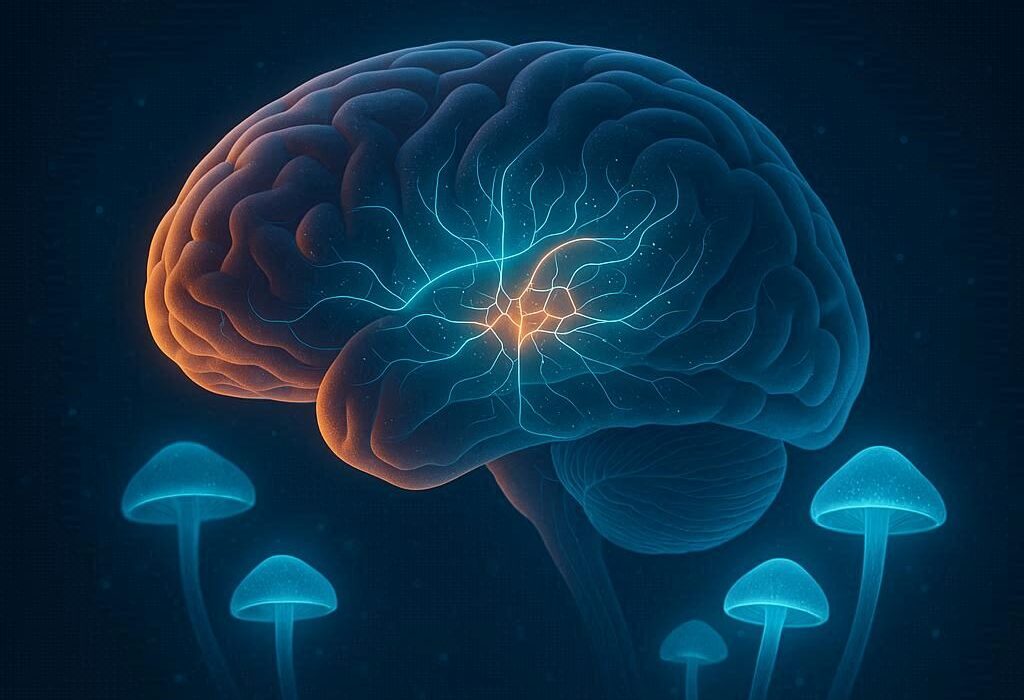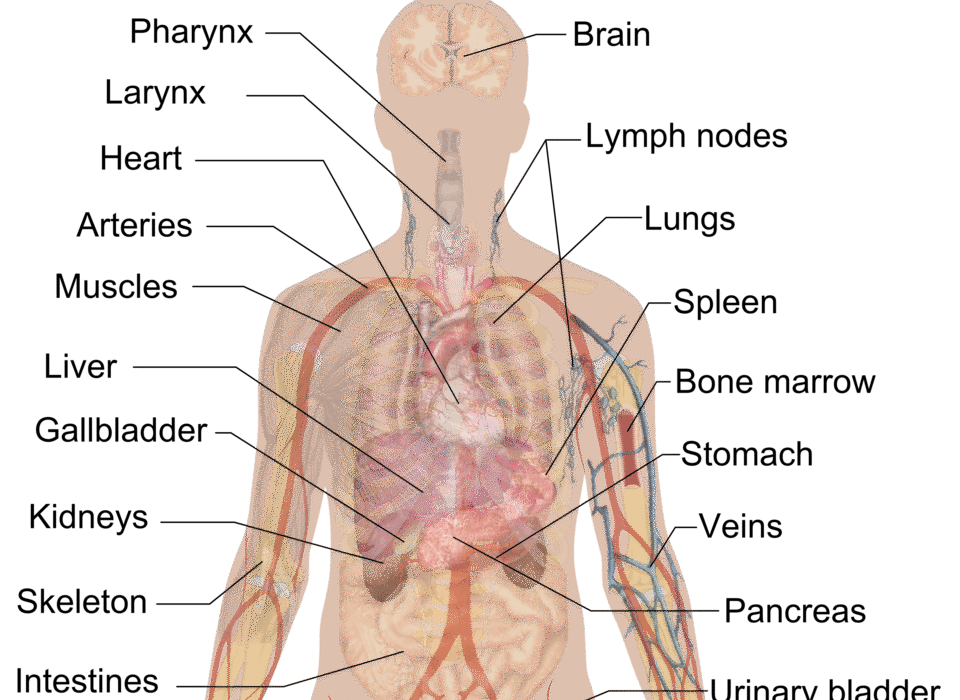Menopause is not simply a biological event—it is a profound transition that marks the closing of one chapter and the opening of another. Every woman will experience it if she lives long enough, yet the journey is as individual as fingerprints. Some pass through with barely a ripple, while others encounter storms that challenge their physical, mental, and emotional resilience. Menopause is at once universal and deeply personal, a natural process woven into the fabric of womanhood but also a mirror reflecting culture, identity, and health.
To understand menopause fully, we must see it not only as the end of reproductive years but as a transformation that reshapes the body and mind. It is a shift in hormones, a recalibration of physiology, and a redefinition of self. Scientifically, it is fascinating. Emotionally, it can be overwhelming. Spiritually, it often brings reflection and renewal.
What is Menopause?
Biologically, menopause is defined as the permanent cessation of menstruation, diagnosed after twelve consecutive months without a menstrual period. It usually occurs between the ages of 45 and 55, with the average age being around 51. Menopause marks the end of ovarian function, meaning the ovaries stop releasing eggs and significantly reduce the production of hormones, especially estrogen and progesterone.
But menopause is not a single moment—it is a process. The years leading up to it, called perimenopause, are filled with hormonal fluctuations that trigger many of the symptoms commonly associated with menopause. After menopause, the body adjusts to its new hormonal state, and health risks and benefits evolve in new directions.
The Hormonal Earthquake
Hormones are the silent conductors of the body’s orchestra. They influence everything from mood and memory to metabolism and bone strength. During menopause, the decline of estrogen and progesterone is like a sudden shift in rhythm that sends ripples through nearly every system.
Estrogen, in particular, plays a central role. Beyond its function in reproduction, estrogen protects the heart, strengthens bones, maintains skin elasticity, regulates body temperature, and influences the brain’s neurotransmitters. When estrogen levels fall, the body must adjust to a world without its steady influence.
This hormonal earthquake explains why menopause can affect so many aspects of a woman’s life, from physical symptoms like hot flashes to cognitive and emotional changes that reshape identity and well-being.
The Physical Effects of Menopause
Hot Flashes and Night Sweats
Perhaps the most famous symptom of menopause is the hot flash. Sudden waves of heat spread across the body, often accompanied by flushing, sweating, and a racing heartbeat. At night, these episodes manifest as night sweats, disrupting sleep and leaving women exhausted.
Scientists believe hot flashes occur due to changes in the brain’s thermoregulatory center, which becomes more sensitive as estrogen declines. While they may seem harmless, frequent hot flashes can severely impact quality of life, interrupting work, rest, and social interactions.
Sleep Disturbances
Sleep is one of the first casualties of menopause. Night sweats wake women repeatedly, but even without them, falling and staying asleep becomes harder. Shifts in circadian rhythm, changes in melatonin levels, and increased anxiety contribute to restless nights. Chronic sleep deprivation then magnifies fatigue, mood swings, and cognitive lapses, creating a cycle that is difficult to break.
Vaginal and Sexual Health
Declining estrogen affects the reproductive tract directly. The vaginal walls become thinner, drier, and less elastic—a condition known as genitourinary syndrome of menopause (GSM). This can lead to discomfort, itching, and painful intercourse, which in turn may reduce sexual desire.
However, menopause does not signal the end of sexuality. Many women report richer sexual satisfaction after menopause once concerns about pregnancy are gone. With medical support, such as lubricants, local estrogen therapy, and open communication with partners, intimacy can remain fulfilling.
Bone Health
Estrogen is a powerful guardian of bone density. When levels drop, bones lose calcium more rapidly, becoming brittle and prone to fractures. This is why osteoporosis risk rises sharply after menopause. A simple fall can lead to a broken hip or spine fracture, events that profoundly affect independence and longevity.
Cardiovascular Health
Estrogen also protects the heart and blood vessels by maintaining healthy cholesterol levels and promoting flexibility in arterial walls. After menopause, women face a higher risk of cardiovascular disease. Heart attacks, once thought of as a “male problem,” become just as significant for women in postmenopause.
Weight and Metabolism
Many women notice changes in body composition during and after menopause. Fat tends to redistribute from the hips and thighs to the abdomen, leading to the so-called “menopause belly.” Metabolism slows, making weight gain more likely even without changes in diet or activity. This shift increases risks of diabetes, hypertension, and metabolic syndrome.
Skin, Hair, and Appearance
Estrogen influences collagen production, which gives skin its elasticity and firmness. After menopause, wrinkles deepen, skin becomes drier, and hair may thin. While these changes are natural, they can affect self-image and confidence.
The Mental and Emotional Effects of Menopause
Mood Fluctuations
Menopause is not just a physical event; it reshapes the inner world of emotions. Fluctuating hormones influence brain chemistry, especially serotonin and dopamine, leading to mood swings, irritability, or sadness. For some, menopause intensifies symptoms of anxiety or depression, while others experience newfound emotional stability once cycles end.
Cognitive Changes
Many women report “brain fog” during perimenopause and early postmenopause—difficulty concentrating, forgetting words, or struggling to recall names. These cognitive hiccups are linked to hormonal shifts, sleep problems, and stress. While alarming, they are usually temporary, and most women do not experience significant long-term memory decline solely due to menopause.
Identity and Self-Perception
The end of menstruation carries symbolic weight. For some women, menopause signals freedom from periods, pregnancy concerns, and hormonal fluctuations. For others, it brings grief over lost fertility, youth, or cultural ideals of femininity.
Menopause can trigger existential reflection: Who am I now? What does it mean to age? What is valuable about this new phase of life? These questions can be unsettling but also transformative, leading to deeper self-acceptance and renewed purpose.
Relationships and Social Impact
Menopause does not occur in isolation—it reverberates through relationships. Partners, families, and workplaces are affected when symptoms disrupt daily life. Mood swings may strain marriages, and fatigue may limit social engagement. Yet, supportive relationships can also buffer stress and create spaces for empathy and growth.
The Long-Term Health Implications
Menopause reshapes long-term health risks. Beyond immediate symptoms, declining estrogen affects disease patterns in ways that extend decades beyond the transition.
- Osteoporosis and fractures become more common.
- Cardiovascular disease rises to become the leading cause of death among postmenopausal women.
- Cognitive decline and dementia risks are influenced by hormonal history, though the relationship is complex.
- Cancer risks shift, with breast cancer risk influenced by hormone replacement therapy and endometrial cancer linked to unopposed estrogen use.
Understanding these implications highlights why menopause is not simply a personal milestone but a public health issue.
Coping with Menopause: Science and Self-Care
Hormone Replacement Therapy (HRT)
HRT remains the most effective treatment for many menopause symptoms, especially hot flashes and bone loss. It replaces estrogen, often combined with progesterone, to restore hormonal balance. However, HRT is not suitable for everyone and carries risks, including increased chances of blood clots and certain cancers. Decisions about HRT must be individualized and made in consultation with healthcare professionals.
Non-Hormonal Treatments
For women who cannot or prefer not to use hormones, non-hormonal options exist. Medications like SSRIs can ease hot flashes and mood changes, while bisphosphonates strengthen bones. Herbal supplements such as black cohosh or phytoestrogens are popular but require careful use, as scientific evidence of effectiveness varies.
Lifestyle Interventions
Lifestyle choices are powerful tools for navigating menopause. A diet rich in calcium, vitamin D, and lean proteins supports bone and muscle health. Regular exercise improves mood, sleep, heart health, and weight management. Stress reduction practices such as yoga, meditation, or deep breathing calm the nervous system.
Social support also matters deeply. Sharing experiences with friends, family, or support groups reduces feelings of isolation and validates the emotional journey.
Cultural Perspectives on Menopause
The experience of menopause is not universal—it is shaped by culture. In some societies, menopause is celebrated as a transition to wisdom and freedom. In others, it is stigmatized as decline or loss. These cultural narratives influence how women perceive symptoms and how they cope.
For example, studies show that women in Japan report fewer hot flashes, possibly due to diet and cultural attitudes, while Western women often frame menopause more negatively. Understanding these differences reminds us that menopause is both biological and cultural, and reframing it as a natural, even empowering transition can transform the experience.
The Psychological Growth of Menopause
Amid the challenges, menopause can be a time of psychological growth. Freed from reproductive responsibilities, many women discover new energy for careers, creativity, or community involvement. Self-confidence often deepens, as priorities shift from external expectations to internal fulfillment.
Menopause can thus be seen not as an ending but as a rebirth into a stage of wisdom, authenticity, and resilience. It invites women to embrace themselves more fully, to value their bodies for their strength rather than their fertility, and to craft lives of meaning beyond biology.
Menopause and the Future of Medicine
Science is rapidly expanding our understanding of menopause. Research into genetics, brain function, and hormone biology may soon yield personalized treatments that address symptoms with fewer risks. Advances in regenerative medicine, precision nutrition, and even artificial intelligence could transform menopause care in the coming decades.
At the same time, advocacy for menopause awareness is growing. Workplaces, healthcare systems, and governments are beginning to recognize that supporting women through menopause is not just a personal issue—it is a societal priority.
A Journey of Transformation
Menopause is a threshold, not a wall. It is a passage that reshapes the body and mind but also opens doors to new possibilities. While symptoms can be difficult, they are part of a profound transformation that touches every aspect of life.
To understand menopause is to honor the complexity of women’s lives—the biology, the psychology, the relationships, and the cultural stories that surround them. It is to see that health is not merely the absence of symptoms but the presence of vitality, resilience, and purpose.
Menopause does not mark the end of womanhood. It marks the beginning of a new chapter—one rich with wisdom, authenticity, and the freedom to live more fully than ever before.






